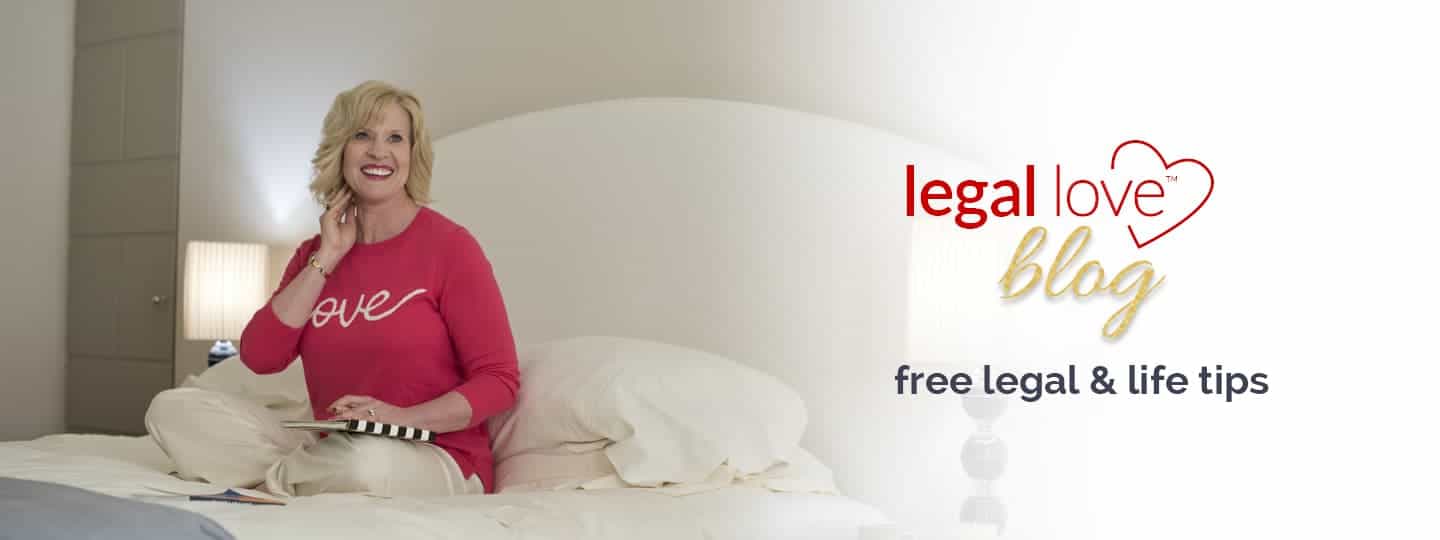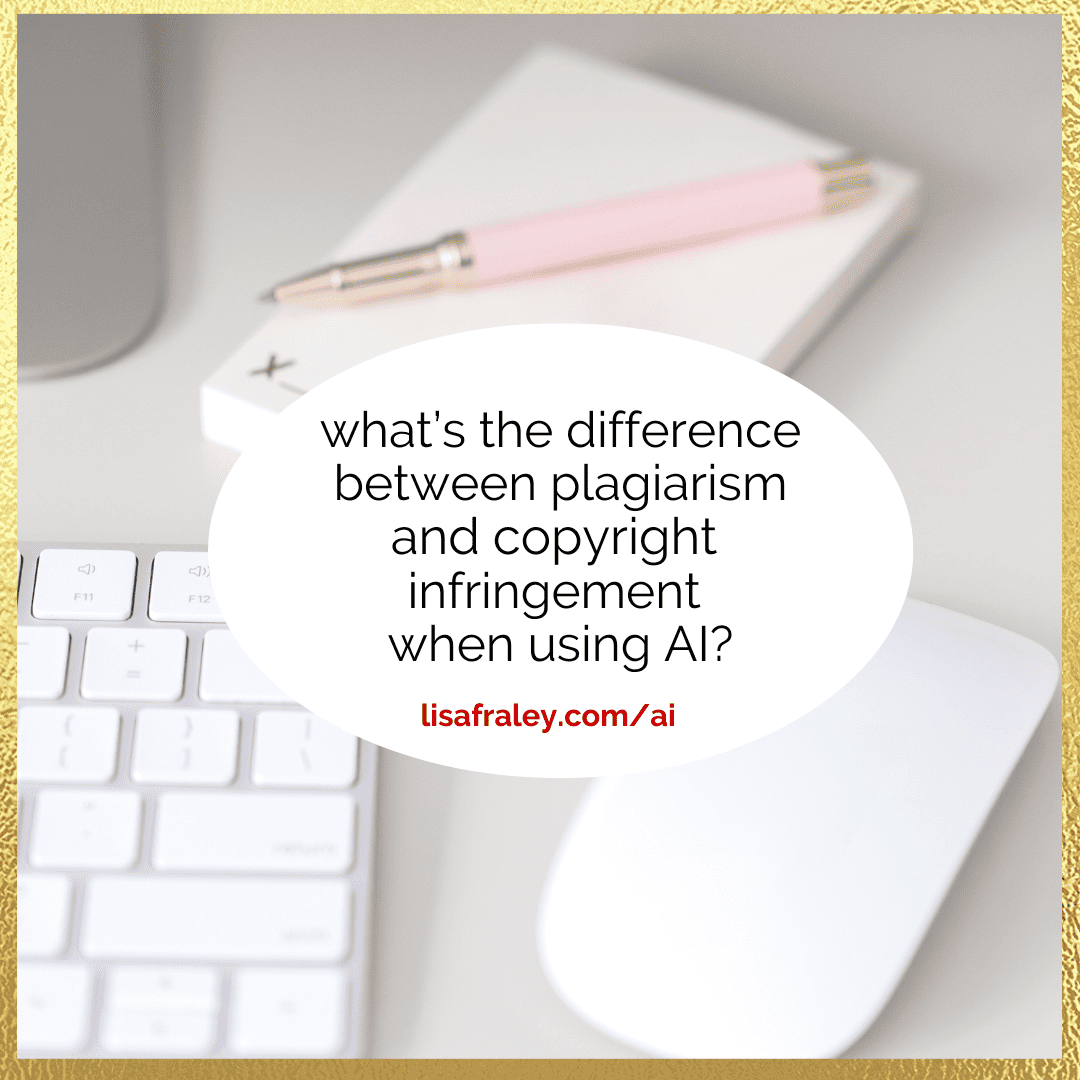Using AI? How to avoid plagiarism and copyright infringement
I was being interviewed on Tracy Matthews’ Flourish & Thrive podcast about AI the other day and she asked a great question…
What’s the difference between plagiarism and copyright infringement when it comes to AI?
What I shared with Tracy and her listeners was this:
It’s easy to confuse plagiarism and copyright infringement because they both involve using others’ work without permission, but in different ways.
Let’s define plagiarism first…
Plagiarism is defined by Oxfordlanguages.com as “the practice of taking someone else’s work or ideas and passing them off as one’s own.” Mirriam-Webster adds that “Plagiarism comes from the Latin plagiarius (meaning) “kidnapper.”’ And the University of Oxford says “it’s a breach of academic integrity.”
Basically, plagiarism would be if I wrote out those definitions above and claimed they were mine or presented that I created them, rather than Oxfordlanguages.com, Mirriam-Webster, and University of Oxford.
It’s essentially stealing someone else’s work and adding your name as the author. It’s not cool. It’s theft. It’s not legal – or ethical.
You may have heard that there are AI apps which are used by a lot of teachers now that can detect whether a student has plagiarized Emily Dickinson for the paper they submitted in their high school English class. This is to try to avoid people claiming Emily Dickinson’s content as their original work…when clearly it is not.
When it comes to AI… there’s concern that when AI is sweeping the internet and churning out a response to your prompt on ChatGPT that the AI program is grabbing all sorts of content and delivering it to you without giving credit to the original author(s).
Let’s say that you use the response to your ChatGPT prompt without editing it (which I don’t recommend) and send it out in your e-newsletter under your name.
There could be an issue of plagiarism because you are claiming that content was written by you when ChatGPT swiped it from original authors.
You would have no idea when or that this was happening, of course.
So what should you do to protect yourself from plagiarism when using AI?
I always recommend editing what ChatGPT – or any AI program – gives you so you aren’t unknowingly using work written by other people without giving them credit.
What about copyright infringement?
Copyright infringement is a little different.
Let’s say you write a book or a song or a program guide or record a video.
You file an application with the US Copyright Office to protect your work and let the world know that you’re the author of an original work.
When you’re granted a copyright, it gives you and your heirs the legal right to enforce your ownership rights to that content for 70 years after the life of the author (you).
Having a copyright protects your creative work, gives you control over how that work may be used by others, and allows you to take legal action when others use your work without your permission.
It puts on record with the government that you are the rightful owner of the work and that gives you rights under copyright laws of the United States. (Other countries have similar copyright laws for their citizens.)
When it comes to AI, the issue is that when AI programs are scraping up content to include in their response to your prompt on Bard, the AI program may be including copyrighted content in the response.
Then you use that content (without editing it) and now you may be infringing on the copyrights of others whether you know it or not.
And even though the AI program is the one doing the scraping, because you’re using it under YOUR name, you could be accused of copyright infringement. (So could the AI program, by the way.)
There are now several big class action lawsuits that were recently filed against AI companies for copyright infringement.
- Comedian Sarah Silverman and others are suing OpenAI (the owners of ChatGPT) and Meta.
- Several news publishers like News Corp and The New York Times are considering suing OpenAI and Google and recently, the Associated Press worked out a deal with OpenAI to license “an archive of news stories” to avoid copyright issues.
- Google has also been sued in a separate class action lawsuit for copyright infringement issues.
Copyright infringement and lawsuits are messy…and we’re just getting started.
So what should you do to protect yourself from copyright infringement when using AI?
I always recommend editing what Bard – or any AI program – gives you so you aren’t unknowingly violating other people’s copyright rights without awareness.
There’s soooo much to know when it comes to AI and these emerging technologies related to creative ownership rights and copyright violations, like:
- What CAN you copyright when you use AI – and what can’t you?
- What can you do to protect YOUR content from being scraped by AI programs and distributed to other people?
- What else do you need to know about how to protect yourself and your content when using AI?
Here’s to using AI in a legally safe and copyright-infringement-free way!
If you’re a newbie to AI and feel overwhelmed by it all, don’t worry. I break it all down to make it easy to understand in the DIY Legal Master Class on AI. Even if you’ve never used AI before but you plan to do so in the future, this class is a good place to start to help you get clear about the legal and ethical issues you need to know as you dive into AI. Check out the DIY Legal Master Class on AI here.




